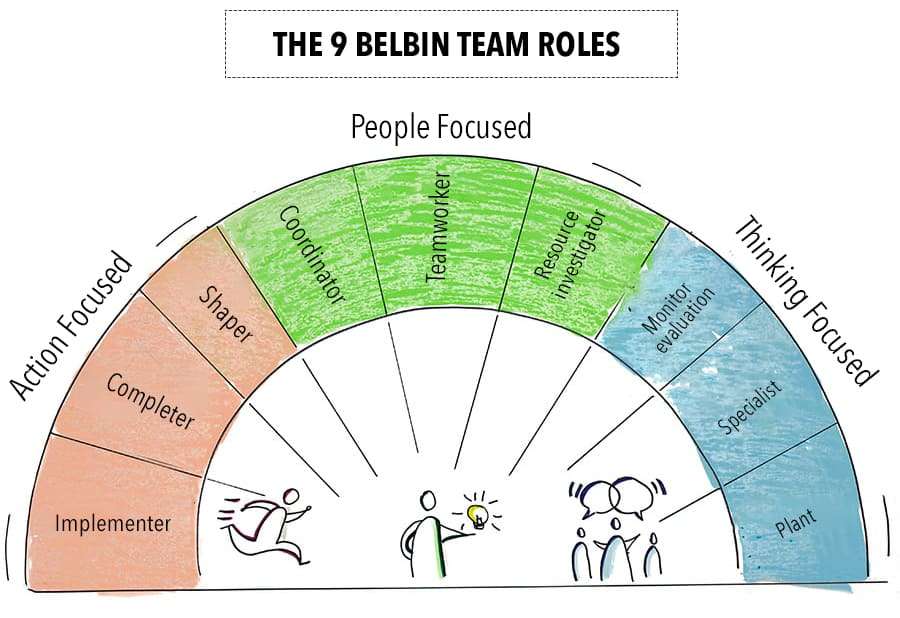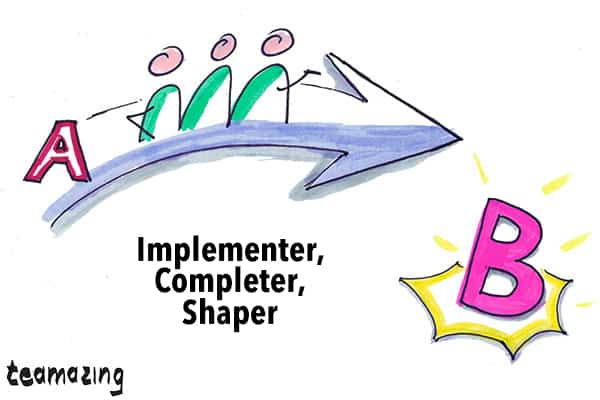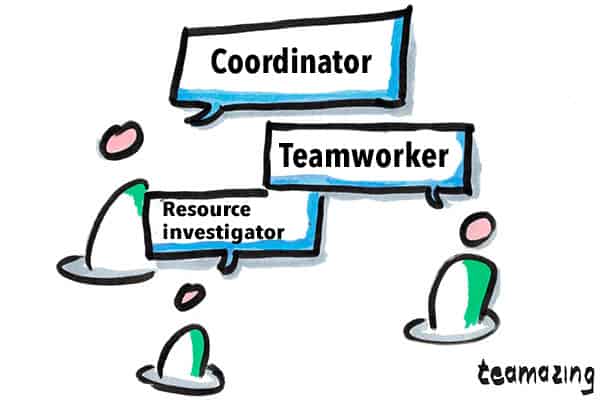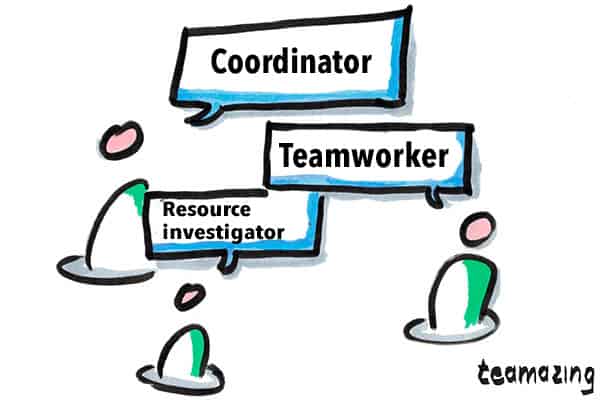These team roles are either assigned to individual members, or they crystallize in the course of team or group dynamics – depending on performance priorities. These roles can be also used within a team development strategy.
Team Roles Test: Whats your role on a Team?
Are you more of a creative lateral thinker or a solution-oriented critic? Do you like responsibilities? Take our quick test to find out!
The Belbin role model
When assembling a team, strengths and weaknesses, knowledge, skills and experience are taken into account.
While working at Henley Management College in the 1970s, the English scientist Meredith Belbin noticed that certain team roles are taken over and over again within a group or teams. He took this insight as an opportunity to find out which characteristics make up the perfect team. This resulted in three main orientations and nine team roles for him. Today, the research of Dr. Belbin is widely used in teams or group management.
Roles of a team
The roles of a team can be divided into the following three categories. Typically, people fit into more than one of these. However, understanding these categories will help you understand your team better.
Action-oriented team roles
-
The implementer
He ensures that ideas and plans are actually implemented within the team. He thus influences decision-making processes. The implementer is considered disciplined and organized. Concepts and structures are very important to him. His weaknesses lie mainly in his impatience towards team members who act more hesitantly and thus prevent progress.
-
The finisher, completer
The perfectionist pays attention to a careful, conscientious way of working within the team. His way of working is structured, organized and always planned through. His weaknesses often lie in “too much” control. He is very reluctant to delegate.
-
The shaper
The doer is solution-oriented. He wants to overcome any obstacles and encourages team members to participate and always improve. The doer is considered impatient, especially when goals are not yet set. This often makes him appear arrogant.
People / Communication oriented team roles
-
The co-ordinator
He is the one who decides. He coordinates the team, pays attention to the distribution of roles and likes to delegate tasks that he himself does not want to or cannot do. He is a determined and self-confident personality. However, he is often said to have a manipulative nature. He is not open to discussion and is quite quick to decide on good ideas.
-
The team-worker
The team-worker stands for good cooperation. It is important for him to know the team members and to get along with them. He chooses his words carefully and is always concerned about a good atmosphere within the team. He is a likeable person. The team worker is often considered indecisive and in critical situations he is often overwhelmed.
-
The resource investigator
The trailblazer is a workhorse. He loves to get to know new contacts all the time, which is why he is concerned about networking outside the team as well. Of course, these contacts are chosen so that they could be useful to their own field of activity and thus to the team. However, the trailblazer very quickly loses interest in current projects, because he always has new ideas.
If you’re looking for a way to improve your whole team’s communication skills, take a look at our virtual communication workshop.
Knowledge / Thinking oriented team roles
-
The innovator
The innovator always comes up with new ideas and is thus considered extremely creative and imaginative. The innovator is often described as a lateral thinker. Through this gift, however, he often loses touch with reality. He is often unfocused and hardly capable of criticism.
-
The observer
The observer plays a decisive role in decision-making. He is always factual and objective and loves new situations. He has an extremely analytical way of thinking, which is often criticized by the others – they often wish for a more intuitive approach. The Observer is often cynical and skeptical and finds it very difficult to motivate others.
-
The specialist
The specialist is an extremely knowledgeable person. He also provides the team with the necessary expertise. He is very self-confident and enjoys taking on new challenges because of his specialized knowledge. He has a very detailed approach to finding solutions. However, this often leads to him getting lost in technical details, which is why he could lose track of things.
The Belbin model is no guarantee for the perfect team. But it is a possibility, or rather an aid, in staffing a team. It is meant to be an orientation guide. Most roles are often assigned unconsciously. Missing roles can be filled using the model. However, this does not mean that every role has to be filled. Some roles can be filled by a single person.







